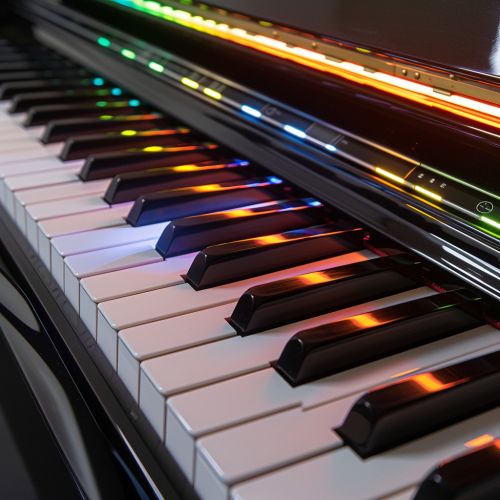Heptatonic Scale
Overview
The Heptatonic scale, also known as a seven-tone scale or seven-note scale, is a musical scale that consists of seven pitches per octave. This scale is one of the most commonly used scales in Western and non-Western music traditions, including classical, jazz, and popular music genres. The heptatonic scale is a subset of the larger category of musical scales, which includes other types such as pentatonic, hexatonic, and octatonic scales.


History
The heptatonic scale has a long and rich history in various musical traditions around the world. It is believed to have originated in ancient times, with evidence of its use found in the music of ancient Greece, China, and India. The ancient Greeks, for example, developed a system of heptatonic scales known as the diatonic scales, which formed the basis for much of Western music theory.
Structure
The structure of a heptatonic scale is defined by the intervallic relationship between the seven pitches. In Western music, the most common heptatonic scales are the major and minor scales, both of which have specific patterns of whole and half steps. The major scale, for example, follows the pattern of whole, whole, half, whole, whole, whole, half steps. The minor scale, on the other hand, follows a different pattern: whole, half, whole, whole, half, whole, whole.
Types of Heptatonic Scales
There are several types of heptatonic scales, each with its own unique structure and sound. These include the major scale, minor scale, harmonic minor scale, melodic minor scale, and the modes of the major scale, among others. Each of these scales has a distinct pattern of intervals that gives it a unique tonal quality.
Major Scale
The major scale is perhaps the most well-known heptatonic scale. It consists of seven pitches with the pattern of whole, whole, half, whole, whole, whole, half steps. This scale is often associated with a happy or bright sound.
Minor Scale
The minor scale is another common heptatonic scale. It consists of seven pitches with the pattern of whole, half, whole, whole, half, whole, whole steps. This scale is often associated with a sad or dark sound.
Harmonic Minor Scale
The harmonic minor scale is a variation of the minor scale with a raised seventh note. This creates a unique sound that is often associated with Eastern music.
Melodic Minor Scale
The melodic minor scale is another variation of the minor scale. It has a raised sixth and seventh note when ascending, but reverts to the natural minor scale when descending.
Modes of the Major Scale
The modes of the major scale are a series of heptatonic scales that are derived from the major scale. These include the Dorian, Phrygian, Lydian, Mixolydian, Aeolian, and Locrian modes.
Uses in Music
Heptatonic scales are used in a wide variety of musical genres and styles. In Western classical music, the major and minor scales form the basis for much of the harmonic and melodic structure. In jazz music, various modes of the major scale, as well as other heptatonic scales, are commonly used for improvisation. In popular music, heptatonic scales are often used in songwriting and melody creation.
